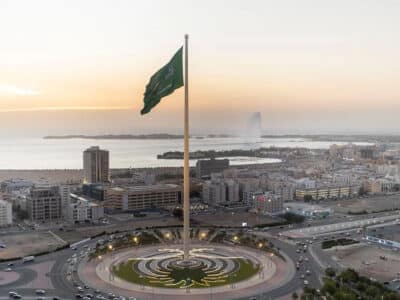HSBC Middle East’s non-performing loans are expected to rise further this year, Fitch Ratings has said in a new report.
It said the rise was forecast because of more prudent classification policies as well as continuing stresses in the region.
The rating agency said the rate of growth of NPLs would “depend on the future performance of its renegotiated loan book and the slow recovery in the UAE economy, in particular in the Dubai government related and real estate sectors”.
Fitch made the comments as it has affirmed HSBC Bank Middle East’s (HBME) long-term issuer default rating (IDR) at ‘AA-‘ and downgraded the viability rating (VR) to ‘bbb’ from ‘bbb+’.
Given its already high level and a negative uutlook, Fitch said it was unlikely that HBME’s IDRs will be upgraded within the next 12-18 months.
HBME’s NPL ratio remained flat at 9.6 percent at end-2011 mainly due to loan recoveries and the reclassification of certain large UAE-related exposures as performing.
Renegotiated loans have increased substantially since 2010 indicating that asset quality remains weak and raising concerns that some of these loans could become problematic in the future, Fitch said.
The rating agency said it expects revenue growth to remain challenging for HBME in 2012 due to fewer lending opportunities in the UAE and regionally as well as new regulatory restrictions on retail lending in several key markets in which it operates.
Net income improved in 2011 largely driven by lower impairment charges.
The rating agency said it had downgraded HBME’s VR following updated disclosure on the asset quality of the bank, resulting in a substantial rise in renegotiated loans as well as faster than previously anticipated new non-performing loan (NPL) formation.
It also reflects the bank’s high borrower concentration which exposes it to event risk and potentially high levels of losses, Fitch added.
Fitch said it believes that the VR remains sensitive to a further deterioration in asset quality affecting the bank’s capitalisation and profitability.
Although HBME’s capital is deemed weak compared to local peers, it is understood that this is maintained in line with group policies and that additional capital to support growth would be provided by HSBC group if required.
Fitch added that HBME’s funding and liquidity position was sound and has one of the lowest loans/deposits ratios in the UAE.
HBME is HSBC’s main vehicle for its Gulf/Middle Eastern operations.
At end-2011, HBME’s network across the Middle East consisted of branches in the UAE, Bahrain, Qatar, Kuwait, Jordan, Lebanon, Pakistan, Algeria and the Palestinian autonomous area.
The bank also has a representative office in Libya and a 51 percent owned subsidiary, HSBC Bank Oman.







